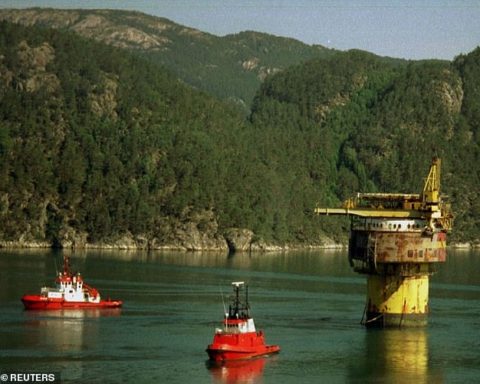With inflation and the cost of living having an adverse effect on many workers across the UK, the First Minister is seeing the first hand impact on Scotland’s economy. The list showed Aberdeen and seven other Scottish cities top the embarrassing news for the Scottish National Party leader.
The slowest wage growth crown was won by Aberdeen, which saw a mere 5.22 percent rise.
The national average of wage growth is 28 percent.
Seven other Scottish cities also completed the top 15.
The Shetland Island, Na h-Eileanan Siar, Clackmannanshire and Fife, Caithness and Sutherland, Ross and Cromarty, Angus and Dundee, the Orkney Islands, and Inverness and Nairn all made the top spots.
The highest non-Scottish location on the chart was South Teesside in England, with Mid and East Antrim in Northern Ireland also making up the numbers.
On the contrary, the 15 highest wage rises were all bar one dominated by London boroughs.
Topping the charts was Hackney and Newham on 51.03 percent.
In 15th place was Cambridgeshire at 32.94 percent.
A Digital ID spokesperson commented on the findings: “The UK is facing a serious cost-of-living crisis, from soaring inflation to unmanageable energy bills, and this data reveals just how hard it is for many areas of the country to swallow the costs.
“The stagnant wages in areas such as Aberdeen, South Teesside, Durham and Derby show just how much the decision to increase National Insurance by 1.25 percentage points in April – which actually translates to an average 10 percent increase in National Insurance – will affect workers who are just trying to provide for their families.”
READ MORE:
Nicola Sturgeon sparks furious row with independence bid
The news comes adds extra pressure on Ms Sturgeon whom last week was warned Babcock, a major employer in the region would consider leaving Scotland for England should they not be made welcome after Scottish independence.
Furthermore, the First Minister has also come under attack from some of the more isolated communities in Scotland over a lack of regular and credible ferry services to islands.
Although unemployment in Scotland has been on the decrease since 1992, the current rate currently stands at 4.1 percent as of December 2021.
Yet with wage growth so low, the notion of workers leaving the area to find more prosperous jobs could lead to a labour shortage in the future.
DON’T MISS:
German economy would be battered by Russia invasion [REPORT]
Primary school BANS pupils using the terms ‘Mum’ and ‘Dad’ [REVEAL]
Teacher fed kids cupcakes laced with husband’s SPERM [INSIGHT]
With the SNP keen to hold a second referendum on Scottish independence as early as next year, some suggest the economy could take a further dive if successful.
Although the benefits of rejoining the EU would once again see Scotland receive funding and grants from the EU, as well as CAP and CFP boosts, a hard border with England could lose Ms Sturgeon more than she gains.
A report by the respected Economics Observatory examined the potential impact on international trade if Scots voted Yes at a future IndyRef2.
It warned EU membership could come at the cost of creating a hard border with England which would push up the price of doing business in both countries.
The report read: “If Scotland were to rejoin the EU, its border with the rest of the UK would become one of the EU’s external borders,
“As the UK is no longer part of the EU’s single market or customs union, this means cross-border trade would be subject to customs checks and other border barriers.
“In addition, physical border infrastructure would probably be required at crossing points between Scotland and England.”
COULD THIS SPELL ECONOMIC DISASTER FOR THE SNP? HOW WILL NICOLA STURGEON REACT TO THE NEWS? HAVE YOU WITNESSED LOW WAGE RISES IN YOUR AREA? JOIN THE DEBATE AND HAVE YOUR SAY IN OUR COMMENTS SECTION – JUST CLICK HERE – EVERY VOICE MATTERS!
It added: “Since the increase in border costs between Scotland and the rest of the UK would be greater if Scotland rejoins the EU than if it remains in a common market with the rest of the UK, an independent Scotland would face a trade-off.
“A good rule of thumb is borders are less costly when they affect less trade.
“This suggests as long as the rest of the UK remains Scotland’s most important trade partner, Scotland would be better off prioritising integration with the rest of the UK, which means staying outside the EU.”
According to the London School of Economics, a hard border between England and Scotland would cost around 5.5 percent of Scotland’s GDP.
Dr David Comerford, from The University of Stirling writing for an LSE blog said: “The impact of performing this counterfactual exercise is a function of assumed parameters, but our central estimate is a reduction in Scottish GDP of 5.5 percent.
“The impact of a completely autarkic Scotland using these parameters is a reduction in Scottish GDP of 20.9 percent.”




